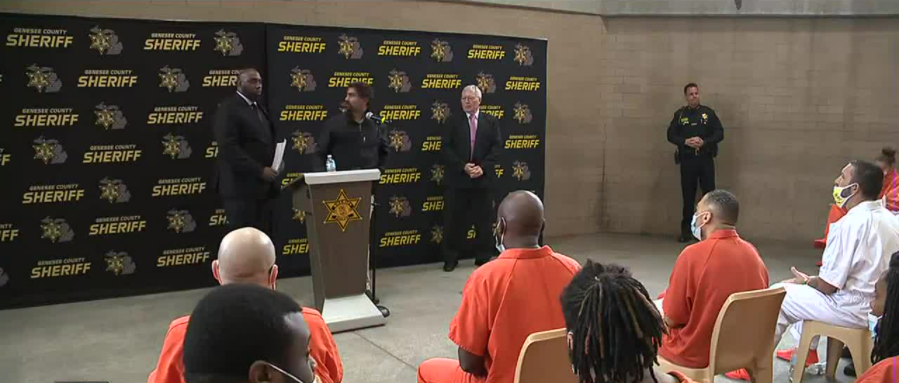During the past 2020 November election, more capitol than ever were allocated towards supporting marginalized voters, especially those behind bars, in an attempt to overturn the former head of state. That year Spread The Vote (STV) launched it’s Vote by Mail in Jail program and helped over 800 incarcerated citizens participate in the election by registering them to vote via absentee ballot. Incarcerated voters involved in VbMiJ had all the forms that they needed mailed to them at no cost along with voter guides and deadline reminders to ensure that they were well equipped to exercise their right. I had the privilege of being promoted to director of Justice Services at Spread The Vote with the responsibility of over- seeing the Incarcerated & Returning Citizens Dept. which includes developing the Vote by Mail in Jail (VbMiJ) program. In 2022 I hope to double the number of voters that were involved in the 2020 election. While this upcoming year of elections may not feel as critical for the many who were desperate to vote out Trump last year, internal biases shouldn’t be the primary motivator to supporting jailed voters with participating in elections. Jail and local clerk officials should be doing all they can every single year to ensure that those with an interest in voting, who are eligible to do so, in the jails are equipped with all of the information and resources necessary to exercise that right, regardless of whose on the ballot.
Far too often than not, I’ve found the opposite to be true. After calling hundreds of facilities across the country, it’s obvious that jail administrators do not view ‘facilitating inmate voting’ on the top of their priority lists. For jailed voters without the necessities: freedom of movement, access to internet, updated contact addresses, writing materials, or even a stamp; it would be extremely difficult to cast their ballot or even register while incarcerated. It’s evident that without support from local clerk’s offices in direct partnership with jail staff, another third-party unbiased impartial organization with a focus on voting rights is essential to encourage and equip facility staff to facilitate that process of hosting elections in their facilities.
Vote by Mail in Jail partnered with six jails in Washington state, Virginia and Michigan to service just under 100 voters during this past off-year November election. Some reasons that jail staff shared for why turnout was so low include, “They weren’t interested in participating,” and “They’d rather wait until they get out to register and then they run out of time to do it” but we know that the reasons why incarcerated voters are more complex than lack of interest or laziness.
A recent in-person local candidate forum was hosted at the Genesee County Jail prior to this past November election that organizers described as “life changing for participants”. Percy Glover, a leader in implementing the forum shares, “It was an educational moment for all those involved”, especially for incarcerated voters, who would have no opportunity to engage in dialogue with those on the ballot otherwise, but also for the staff and candidates. Some candidates admitted that they hadn’t even been aware that there were people in jail with voting rights. Jail officials like Genesee County Sheriff Chris Swanson in partnership with groups like the Voter Access for All Coalition (VAAC) have developed the blueprint for how detention facilities can engage incarcerated voters with in-person and re- mote methods. In 2022 there are no excuses for elections being cacerally exclusive.
See coverage from the date of the jail forum by abcNews here.

